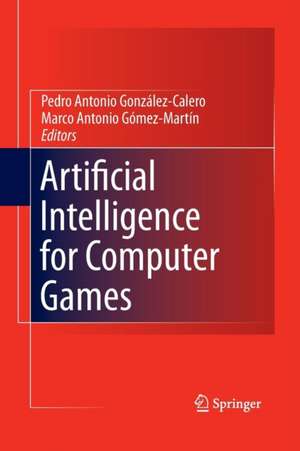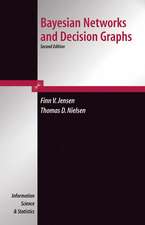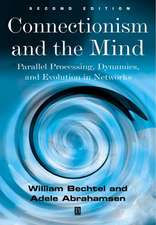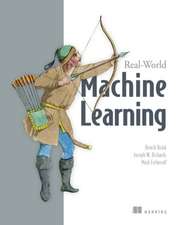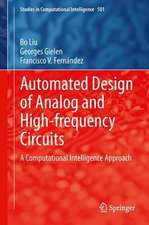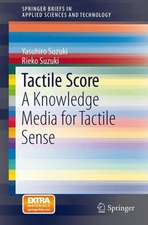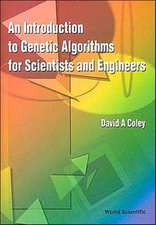Artificial Intelligence for Computer Games
Editat de Pedro Antonio González-Calero, Marco Antonio Gómez-Martínen Limba Engleză Paperback – 30 sep 2014
academic AI techniques into current electronic entertainment games.
The book elaborates on the main results produced in Academia within the last 10 years regarding all aspects of Artificial Intelligence for games, including pathfinding, decision making, and learning. A general theme of the book is the
coverage of techniques for facilitating the construction of flexible not prescripted AI for agents in games.
Regarding pathfinding, the book includes new techniques for implementing real-time search methods that improve the results obtained through AI, as well as techniques for learning pathfinding behavior by observing actual players.
Regarding decision making, the book describes new techniques for authoring tools that facilitate the construction by game designers (typically nonprogrammers) of behavior controlling software, by reusing patterns or actual
cases of past behavior. Additionally, the book will cover a number of approaches proposed for extending the essentially pre-scripted nature of current commercial videogames AI into a more interactive form of narrative, where the story emerges from the interaction with the player. Some of those approaches
rely on a layered architecture for the character AI, including beliefs, intentions and emotions, taking ideas from research on agent systems.
The book also includes chapters on techniques for automatically or semiautomatically learning complex behavior from recorded traces of human or automatic players using different combinations of reinforcement learning, case-based reasoning, neural networks and genetic algorithms.
| Toate formatele și edițiile | Preț | Express |
|---|---|---|
| Paperback (1) | 982.86 lei 6-8 săpt. | |
| Springer – 30 sep 2014 | 982.86 lei 6-8 săpt. | |
| Hardback (1) | 989.96 lei 6-8 săpt. | |
| Springer – 7 mar 2011 | 989.96 lei 6-8 săpt. |
Preț: 982.86 lei
Preț vechi: 1228.58 lei
-20% Nou
Puncte Express: 1474
Preț estimativ în valută:
188.07€ • 196.36$ • 155.65£
188.07€ • 196.36$ • 155.65£
Carte tipărită la comandă
Livrare economică 05-19 aprilie
Preluare comenzi: 021 569.72.76
Specificații
ISBN-13: 9781493900534
ISBN-10: 1493900536
Pagini: 212
Ilustrații: XII, 200 p.
Dimensiuni: 155 x 235 x 15 mm
Greutate: 0.3 kg
Ediția:2011
Editura: Springer
Colecția Springer
Locul publicării:New York, NY, United States
ISBN-10: 1493900536
Pagini: 212
Ilustrații: XII, 200 p.
Dimensiuni: 155 x 235 x 15 mm
Greutate: 0.3 kg
Ediția:2011
Editura: Springer
Colecția Springer
Locul publicării:New York, NY, United States
Public țintă
ResearchCuprins
Visual Data Mining of Player Traces in Interactive Environments.- Heuristic search methods for pathfinding.- Pattern-based AI Scripting.- Case-Based Reasoning and User-Generated Gameplay.- Knowledge acquisition for adaptive
game AI.- Game AI as Storytelling.- Affective Interactive Narrative.- Virtual Humans.- Interactive Drama.- Dynamic Behaviour Trees.
game AI.- Game AI as Storytelling.- Affective Interactive Narrative.- Virtual Humans.- Interactive Drama.- Dynamic Behaviour Trees.
Textul de pe ultima copertă
Techniques used for Artificial Intelligence (AI) in commercial video games are still far from state-of-the art in Academia, but with graphics in video games coming close to photo realistic quality, and multi-processor architectures getting common in console and PC game platforms, sophisticated AI is getting into the focus of the video game industry as the next big thing for enhancing the player experience. "Artificial Intelligence for Games" collects some of the most relevant results from Academia in the area of Artificial Intelligence for games. The selection of contributions has been biased towards rigorous and theoretically grounded work that is also supported with developed prototypes, which should pave the way for the integration of academic AI techniques into state-of-the-art electronic entertainment games. The chapters in the book cover different areas relevant to AI in commercial games:
- Real-time heuristic search algorithms that alleviate the scalability problem of A* techniques
- Authoring tools that facilitate the construction by game designers (typically non-programmers) of behavior controlling software
- Algorithms for automatically or semi-automatically learning complex behavior from recorded traces of human players
- Techniques that try to deliver the best possible experience by dynamically adapting the game to the player interaction
Caracteristici
Translates the last decades of research into practical ideas to enhance the computer game experience;
Presents approaches for evolving interaction beyond the pre-scripted narratives normally encountered;
Integrates research into reinforced learning, case-based reasoning and genetic algorithms into game development
Includes supplementary material: sn.pub/extras
Presents approaches for evolving interaction beyond the pre-scripted narratives normally encountered;
Integrates research into reinforced learning, case-based reasoning and genetic algorithms into game development
Includes supplementary material: sn.pub/extras
